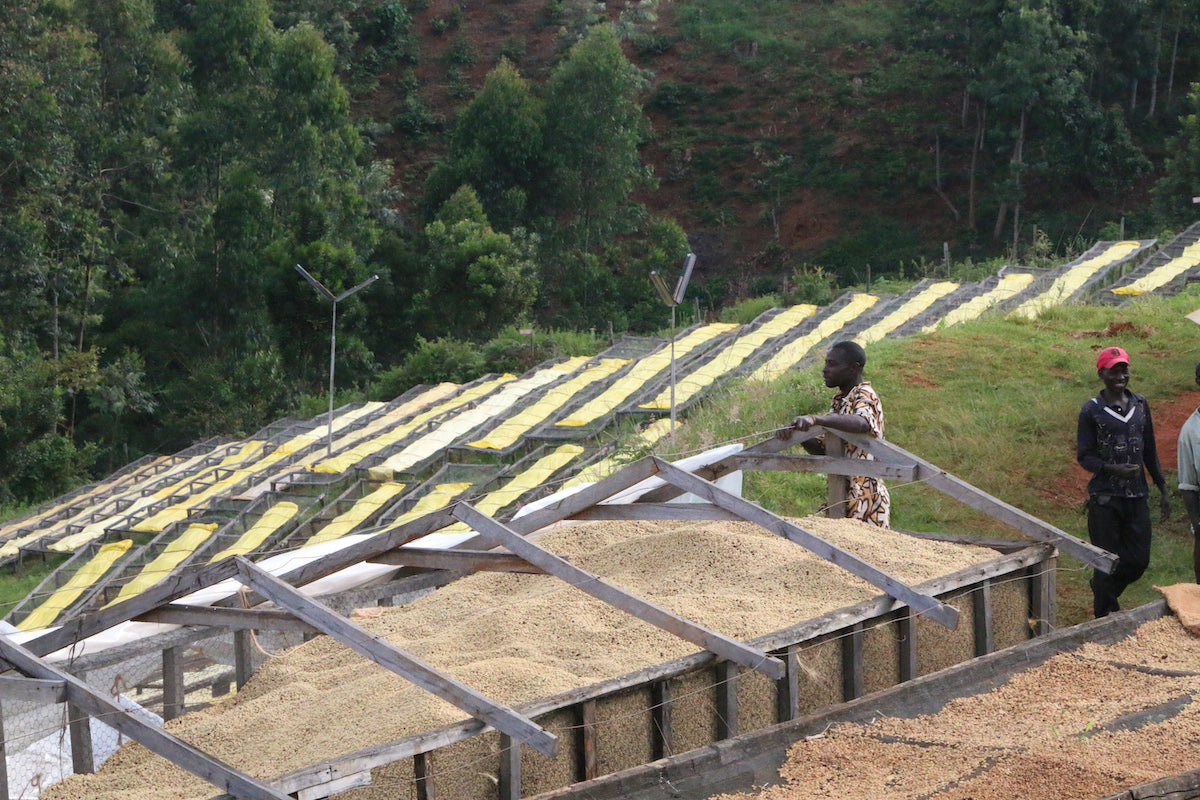
Kenya, a country synonymous with remarkable wildlife and breathtaking landscapes, is also a powerhouse in the world of coffee production. Known for its bold, bright, and distinctive coffees, Kenya has earned a prominent spot in the global coffee industry. Let's explore the intricate journey of coffee production in Kenya, from the lush highland plantations to your warm, comforting cup.
Historical Background of Kenyan Coffee
Although coffee was not native to Kenya, it found a thriving home here. Introduced by French missionaries in the late 19th century, the crop began to flourish in the country's fertile volcanic soils and favourable climate, laying the groundwork for what would become a world-renowned coffee industry.
Geography and Climate: Nature's Bounty
Located on the eastern coast of Africa, Kenya boasts high plateaus with ideal conditions for growing coffee. The regions of Nyeri, Kirinyaga, and Embu, among others, are particularly celebrated for their exceptional coffee. High altitudes, abundant rainfall, and the perfect balance of sunlight and temperature combine to create the perfect environment for coffee cultivation.
Coffee Cultivation and Processing
In Kenya, smallholder farmers play a significant role in coffee production. They often band together in cooperatives, sharing resources to cultivate, harvest, and process their coffee. Most Kenyan coffee is grown without the use of chemical fertilisers or pesticides, thanks to the country's fertile soils and traditional farming practices.
Kenya's coffee harvest typically takes place between October and December, with the coffee cherries hand-picked to ensure only the ripest are selected. Following the harvest, Kenyan coffee undergoes a unique processing method known as "double fermentation," where the coffee is fermented, washed, and then fermented again. This method, along with meticulous sorting and grading, contributes to Kenyan coffee's distinctively bright and complex flavour profile.
Kenya Coffee in the Global Market
Kenya's place in the global coffee market is distinguished by its quality rather than quantity. Known for their intense flavours, bright acidity, and wine-like aftertaste, Kenyan coffees are highly sought after in the specialty coffee sector. Notably, Kenyan coffee auctions, run by the Nairobi Coffee Exchange, are an integral part of the country's coffee industry, attracting buyers from around the world.
Challenges and Future Outlook
Despite its success, Kenya's coffee industry faces challenges, including climate change, ageing coffee trees, and economic hurdles for smallholder farmers. However, the industry is showing resilience and adaptability, with initiatives aimed at increasing productivity, enhancing quality, and boosting farmers' incomes.
Conclusion
The story of Kenyan coffee is a testament to the country's dedication to quality, innovation, and community. From the careful cultivation in high-altitude farms to the unique double fermentation process, each step reflects Kenya's commitment to producing exceptional coffee. Looking towards the future, Kenya continues to carve out a niche for itself in the global coffee landscape, offering vibrant and distinctive coffees that capture the essence of this extraordinary country.
The next time you enjoy a cup of Kenyan coffee, take a moment to appreciate its journey. Each sip is a celebration of Kenya's coffee heritage, a tribute to its hardworking farmers, and a testament to the country's enduring pursuit of coffee excellence. Drinking Kenyan coffee isn't just about enjoying its bold, bright flavours—it's about experiencing a piece of Kenya's rich coffee culture.
